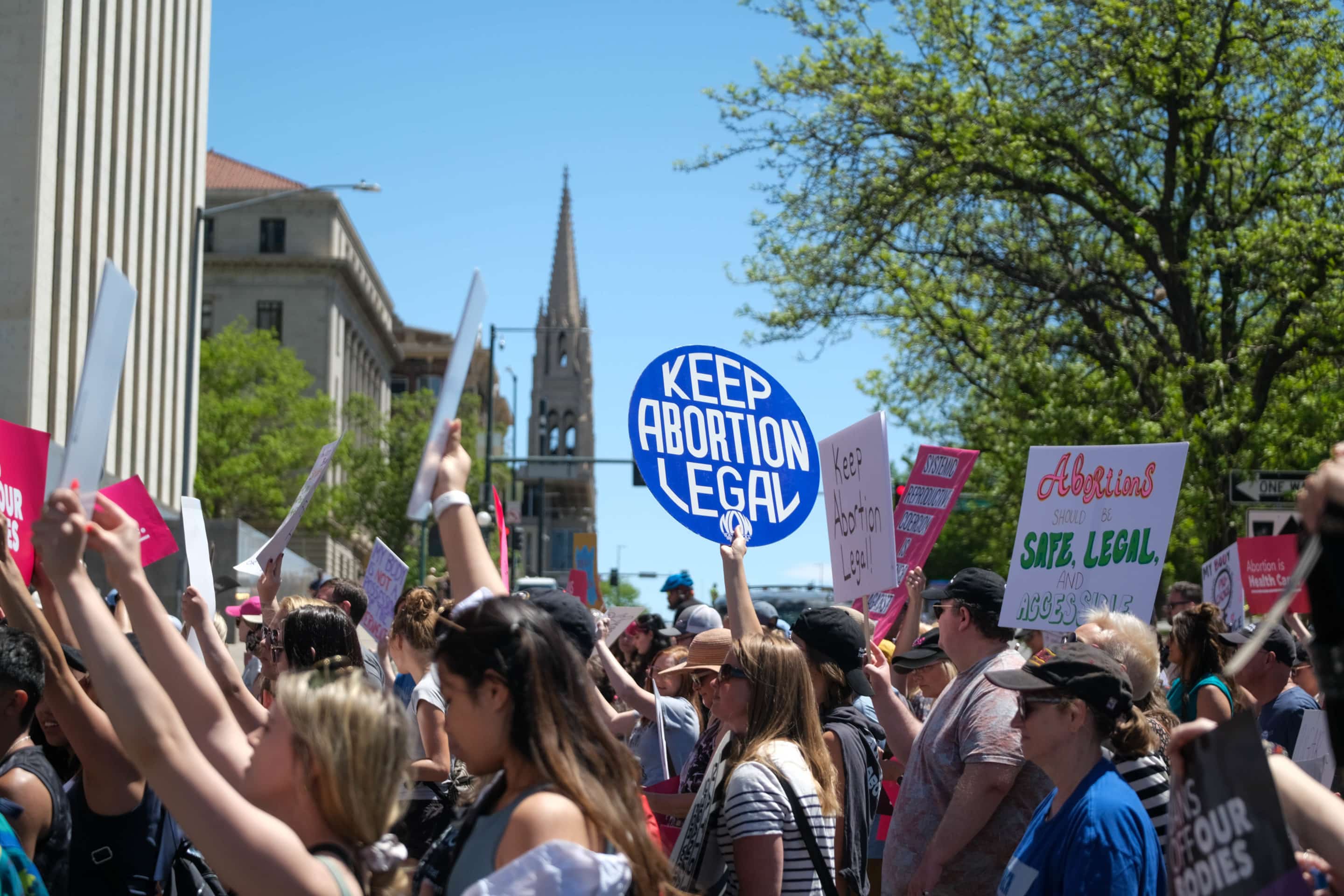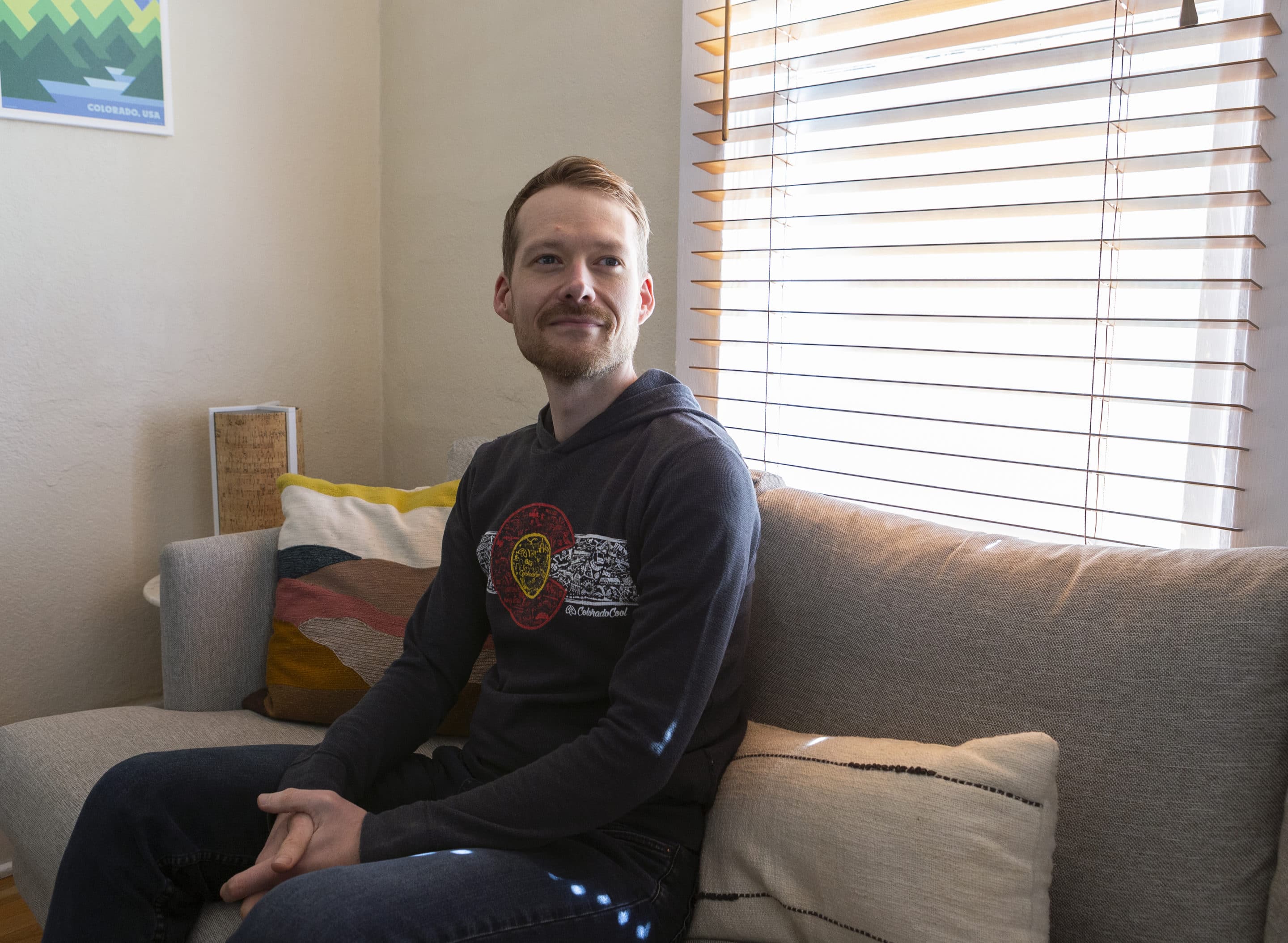//Prisca Sisa overlooks the Denver city skyline of Blake Street on May 27. Sisa became a young mother when she was 17 and decided to hold off on having more children after. She didn’t realize until she was a patient at Mother’s Clinic that she could access free birth control. Photo by Karson Hallaway | [email protected]
At 17 years old, Prisca Sisa found out she was pregnant. After her baby was born, she knew she didn’t want any more children while she worked to graduate high school. Thanks to the doctors and nurses who supported her throughout her pregnancy, Sisa was directed toward the Young Mother’s Clinic.
“I didn’t know that I could access free birth control until I was a patient at the Young Mother’s Clinic,” Sisa said. “There was a lack of not only easy access but awareness about what was available to me when I was younger.”
The Young Mother’s Clinic provides various healthcare services and resources to help young mothers and their children as a part of Colorado Children’s Hospital. This affiliation allows them to connect their patients with BC4U, a series of Title X family planning clinics also within the Colorado Children’s Hospital system.
Since 2009, BC4U has provided free birth control solutions, educational resources and other reproductive health services to people under 25 years old in Colorado. Access to these resources gave Sisa the ability to make her own choices for her future, but there is still work to be done. While BC4U has brought water to contraceptive deserts across the state, many females, especially females of color, still find themselves cut off from accessing their services.
Sisa’s story of teenage motherhood is not uncommon considering three in 10 American teen girls will get pregnant at least once before age 20. That amounts to nearly 750,000 teen pregnancies every year, making unintended parenthood the leading reason female teens drop out of school.
However, since 2009, Colorado has seen a steep drop in teen pregnancies and abortions. What’s the secret? Increasing access to free or low-cost birth control.
According to a new CU Boulder-led study published on May 5 in the journal Science Advances, when access to free and low-cost birth control goes up, the percentage of young females who leave high school before graduating drops by double-digits. After following 170,000 subjects for up to seven years, the study provides robust evidence that access to contraception yields long-term socio-economic benefits for females and taxpayers in general.
The decline in unintended pregnancies has saved Colorado taxpayers an estimated $66-69.6 million. That money would otherwise have been spent on state and federal welfare and health care programs for low-income young mothers if these birth control programs weren’t available.
Nearly all unplanned pregnancies occur among partners who weren’t using birth control at all or incorrectly. Unintended pregnancies make up half of all pregnancies in Colorado. These mothers are at greater risk for a number of social, economic and health challenges.
Thanks to a $27 million grant from a private donor in 2008 and bipartisan support from elected officials, the Colorado Family Planning Initiative, or CFPI, has been a leading force in cutting teen pregnancies and abortions. As a result, access to more forms of contraception in the state has widely expanded as the unintended pregnancy rate continues to decline.
“We’re giving girls and women options,” said Angela LeMire, a family planning nurse consultant at the Colorado Department of Public Health and Environment. “We’re giving them the chance to plan their future, whether that’s graduating high school, attending college or setting themselves up to be financially ready to have a child someday.”
From 2008-2017, the CFPI program has helped cut the teen birth rate in Colorado by 61% and the abortion rate by 54%. The funding was dispersed amongst 75 public health clinics across the state. The support has allowed clinics to not only provide inexpensive forms of birth control, like condoms and oral contraceptives, but also more costly long-acting reversible contraception, including intrauterine devices, often referred to as IUDs, and implants.
The CFPI has increased health care provider education and training and reduced costs for more expensive contraceptive options. This has enabled more than 30,000 patients in the state to choose long-acting reversible contraception.
“Through this grant, we were able to expand the types of birth control we could make accessible for our patients and not only provide them with contraception, but contraception of their choice,” said Liz Romer, executive director and nurse practitioner at BC4U.
Before 2009, Title X clinics couldn’t afford to offer IUDs to their patients and instead had to offer lower-cost options including the patch, Depo-Provera shots or birth control pills. Pills and patches often aren’t as reliable of a choice of birth control when compared to an IUD. Due to the fact that IUDs can prevent pregnancies for up to 10 years depending on the type, the method alleviates the panic of inconsistency. With a pregnancy rate among users of less than 1%, it’s as effective as tubal ligation. Since the IUD can be removed, it’s often recommended as an alternative to the more permanent surgical solution.
“Birth control is not a one-size-fits-all and everyone’s experience with it is different,” Romer said. “Some of our patients have had to try several options before finding what works for them and being able to do that for them is critical to our mission.”
Over eight years, BC4U helped more than 12,000 adolescents and delivered more than 8,000 long-acting contraceptive methods. Working closely with the Children’s Hospital’s TRUE Center for Gender Diversity, BC4U has also been able to ensure that trans teens are not only educated in the use of birth control, but have access to contraceptives of their choice.
Just like cisgender women may use birth control to reduce hormonal acne, regulate periods or address mood swings, transgender men might use it for the same reasons. For some, continued menstruation can trigger bouts of gender dysphoria.
“BC4U is the largest provider of Title X services to the LGBTQ+ community in Colorado,” Romer said. “We’ve partnered with the [TRUE Center] team and are working to ensure that the trans community can take advantage of the same offerings cis-girls can.”
Bipartisan support of the program led to more funding provided by the state once the eight-year grant ended. Colorado lawmakers increased financial support by $2.5 million per year and the clinics received more Medicaid funding, expanding government insurance for low-income residents.
While BC4U and other clinics have increased access to birth control for many, there are still girls, women, transgender boys and transgender men who have slipped through the cracks.
According to data from the Colorado Organization of Latina Opportunity and Reproductive Rights, or COLOR COLOR, more than 300,000 Coloradans live in contraceptive deserts, which means residents lack reasonable access in their county to a health center that offers the full range of contraceptive methods.
This often means potential patients have to do more than show up to an appointment. They must take time off work or school, access transportation and travel long distances just so they can acquire their preferred birth control method.
“Even though Colorado has provided Title X clinics and the family planning initiative, a lot of those health centers are not even in the areas that people really need and with the Trump administration’s gag rule we saw a 10% decrease in the ability to serve contraceptive seeking patients,” said Katherine Riley, policy manager at COLOR.
Sisa isn’t surprised that barriers, like contraceptive deserts, still hold young people back from being able to take advantage of contraceptive programs. While she was lucky enough to become aware of BC4U and what the program could do for her, she recognizes that the need for getting out in the community is important. Although Colorado has made a name for itself as a pioneer of free birth control, access for only a portion of the population doesn’t equate to true and equal access. Increasing awareness within all communities is critical to keeping unintended pregnancies down and graduation rates up.
“I know clinics like BC4U advertise their services on platforms like Facebook but they need to get out in the community and talk with the people,” Sisa said. “Not everyone has access to the clinics or to the internet to find out about these clinics, so increasing their in-person presence on the ground in these communities could be a game-changer.”
We hope you enjoyed this article! Did you know you can support your local press for FREE by becoming a member? Subscribe today.





0 Comments